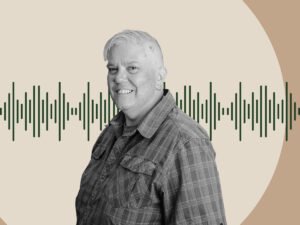June 13, 2012; Source: Current
Dru Sefton reports in Current that a couple of executives at Alabama Public Television (APT) have been summarily dismissed by the Alabama Educational Television Commission. Sefton’s article suggests that the issue might have been APT’s less than enthusiastic response to a desire by some on the Commission to air some videos produced by an evangelical minister and conservative activist named David Barton who frequently appears on Glenn Beck’s show. Working for a Texas-based organization called WallBuilders LLC, Barton’s 10-part The American Heritage Series has aired on various conservative networks. The series “presents America’s forgotten history and heroes, emphasizing the moral, religious and constitutional foundation on which America was built.” The idea for airing the series on APT reportedly came from AETC Commissioner Rodney Herring, who was appointed to the Commission by former Republican Gov. Bob Riley in 2011 and became board secretary in January of this year.
APT’s executive director, Allen Pizzato, and deputy director/chief financial officer, Pauline Howland, were dismissed. Howland told Current that the Barton series discussed “how the country was founded on religious principles, and how we need to go back to that.” She said that Pizzato, who had been APT’s executive director for a dozen years, “and his staff had ‘grave concerns’ that the videos were inappropriate for public broadcasting due to their religious nature.” After an executive session by the Commission, Pizzato was reportedly handed his immediate walking papers. Exhibiting some distinctive professionalism, Pizzato simply said that there “was an irreconcilable difference in opinion of the future direction of the station” and that he served “at the pleasure of the board.”
Sign up for our free newsletters
Subscribe to NPQ's newsletters to have our top stories delivered directly to your inbox.
By signing up, you agree to our privacy policy and terms of use, and to receive messages from NPQ and our partners.
There’s no question that the founding fathers of this nation were a remarkably brilliant collection of men, but the efforts to make them focal points for today’s political controversies are sometimes overreaching. Nominally, the founding fathers were all Protestants minus an odd Catholic here and there (Maryland was founded by Catholics). No Jews, Muslims, Native Americans or black slaves happened to be signatories of the Declaration of Independence, the Articles of Confederation, or the Constitution—and of course there were no women. However, regardless of their specific church denominations, many (perhaps most) of the founding fathers were secularists in their attitudes and beliefs about the country they were crafting and deists in terms of their religious beliefs.
Some of the central figures among the founders—Thomas Jefferson, Thomas Paine, John Adams, and others—harbored little or no support for religious orthodoxy in general, much less that it should be applied to the government of the United States. Our favorite founding father on this topic has to be Benjamin Franklin, whose Poor Richard’s Almanac contained some pithy witticisms about religion. He didn’t reject religion, but he wrote, “The way to see by faith, is to shut the Eye of Reason.”
Barton is a contemporary, not one of the founding fathers, but some commentators seem to treat him as such. A report from People for the American Way (PFAW) notes that “Mike Huckabee calls him America’s greatest historian, says he should be writing the curriculum for American students, and in fact suggested that all Americans should be ‘forced at gunpoint’ to listen to his broadcasts. Michelle Bachmann calls him ‘a treasure for our nation’ and invited him to teach one of her Tea Party Caucus classes on the Constitution for members of Congress… Glenn Beck calls him ‘the most important man in America.’” Though Barton is clearly influential, PFAW eviscerates his historical scholarship. The overall theme of his work is that the idea that most people have of the founding fathers’ belief in the separation of church and state is a myth, though a look at the Wallbuilders website suggests that Barton’s concept of “the Godly foundation of our country” seems to be a very Christian view, with little room for the likes of Muslims; he was, for instance, no fan of Rep. Keith Ellison (DFL-Minn.) being sworn into office using the Koran once owned by Thomas Jefferson.
The point is that political orthodoxy has quite an influence over the content of nonprofit journalism in print and over the airwaves. In today’s political environment, political orthodoxy is often heavily laden with religious orthodoxy. Some of us are lucky to work for media outlets where religious or political apostasy comes at the cost of one’s job.—Rick Cohen













